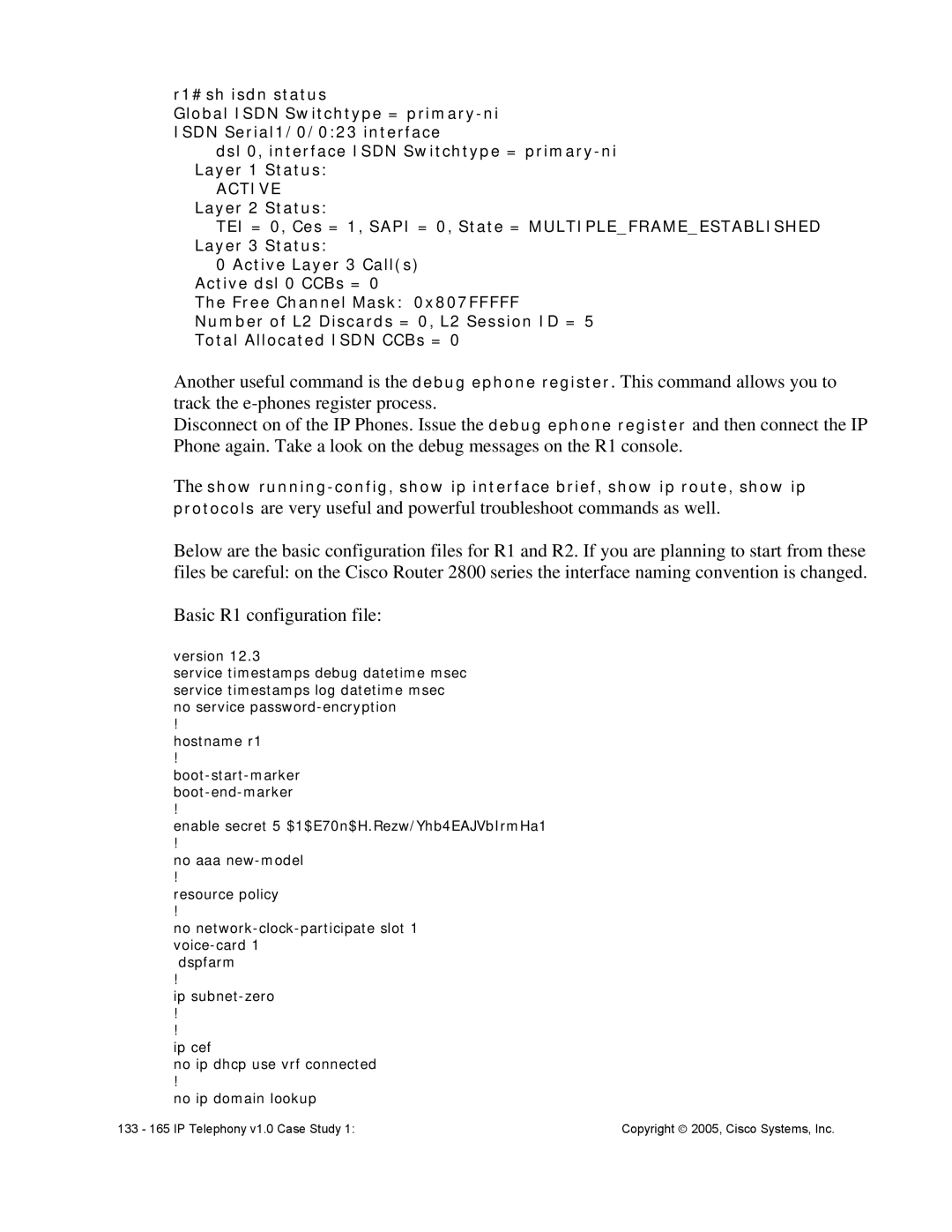r1#sh isdn status
Global ISDN Switchtype =
dsl 0, interface ISDN Switchtype =
ACTIVE Layer 2 Status:
TEI = 0, Ces = 1, SAPI = 0, State = MULTIPLE_FRAME_ESTABLISHED Layer 3 Status:
0 Active Layer 3 Call(s) Active dsl 0 CCBs = 0
The Free Channel Mask: 0x807FFFFF Number of L2 Discards = 0, L2 Session ID = 5 Total Allocated ISDN CCBs = 0
Another useful command is the debug ephone register. This command allows you to track the
Disconnect on of the IP Phones. Issue the debug ephone register and then connect the IP Phone again. Take a look on the debug messages on the R1 console.
The show
Below are the basic configuration files for R1 and R2. If you are planning to start from these files be careful: on the Cisco Router 2800 series the interface naming convention is changed.
Basic R1 configuration file:
version 12.3
service timestamps debug datetime msec service timestamps log datetime msec no service
!
hostname r1
!
!
enable secret 5 $1$E70n$H.Rezw/Yhb4EAJVbIrmHa1
!
no aaa
!
resource policy
!
no
dspfarm
!
ip
!
!
ip cef
no ip dhcp use vrf connected
!
no ip domain lookup
133 - 165 IP Telephony v1.0 Case Study 1: | Copyright ♥ 2005, Cisco Systems, Inc. |
